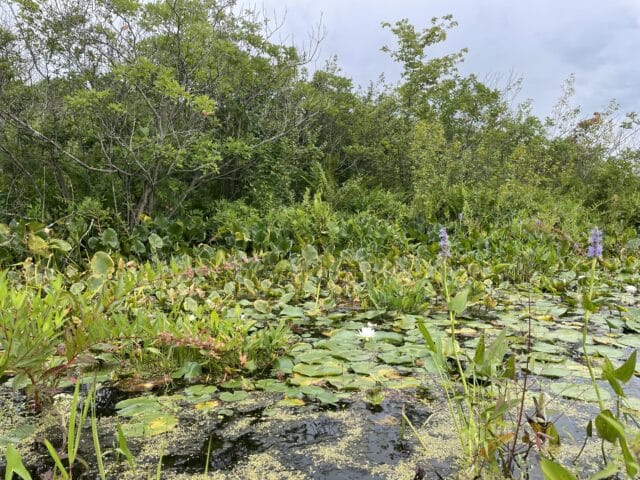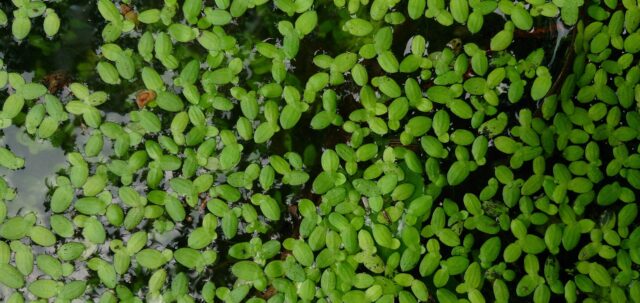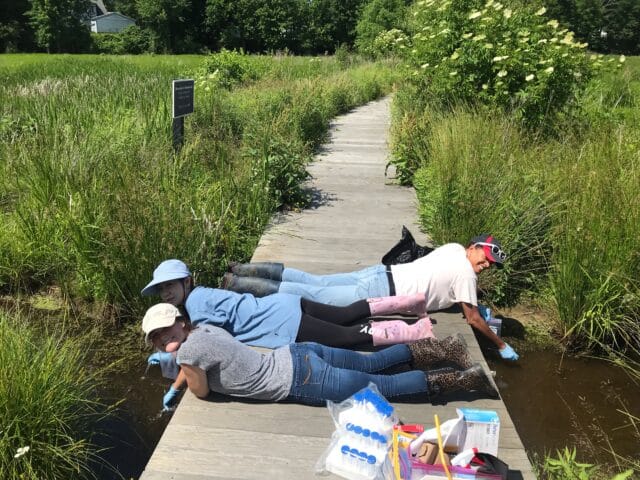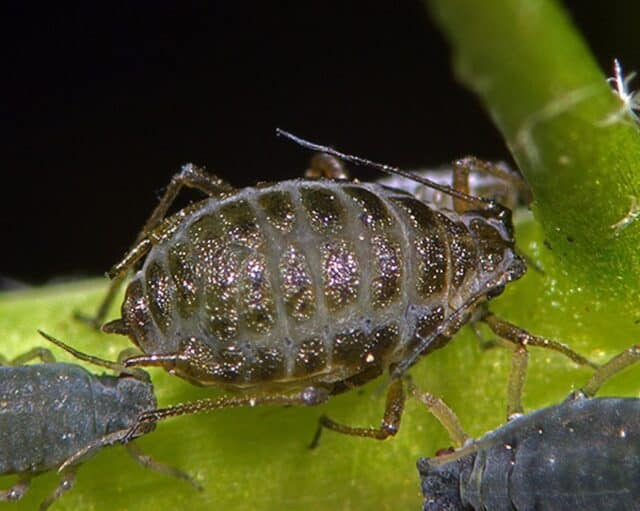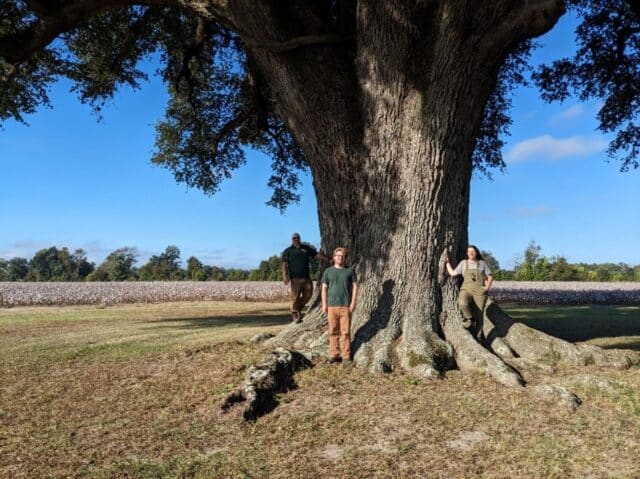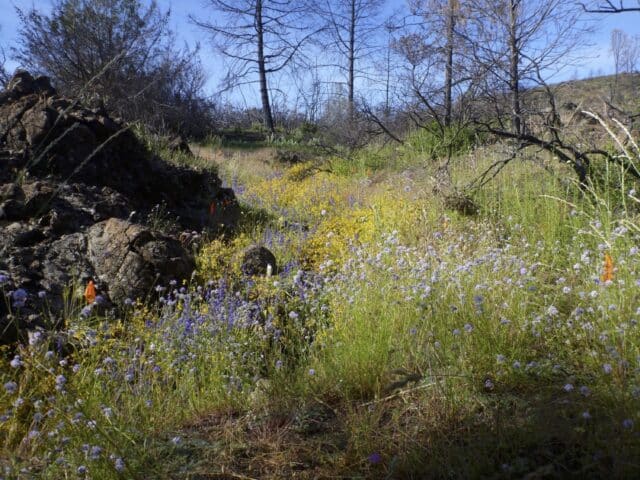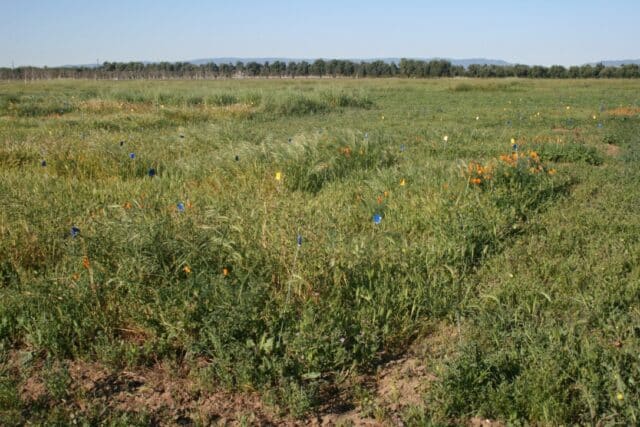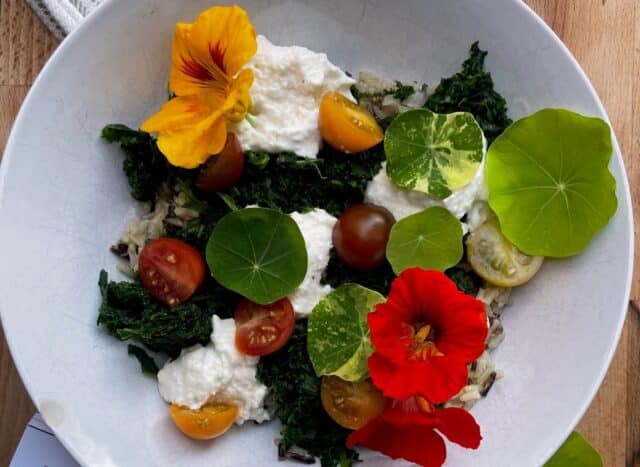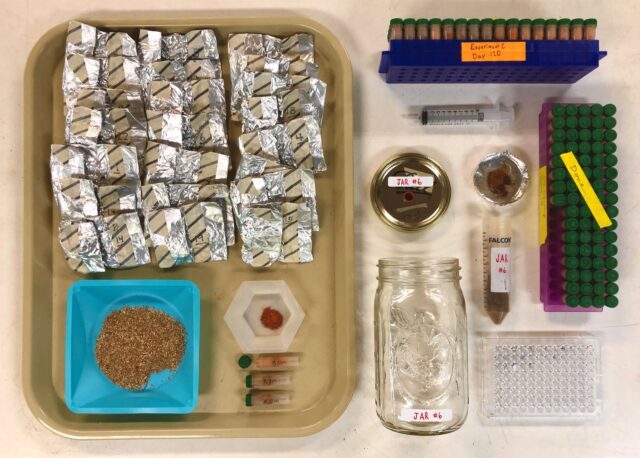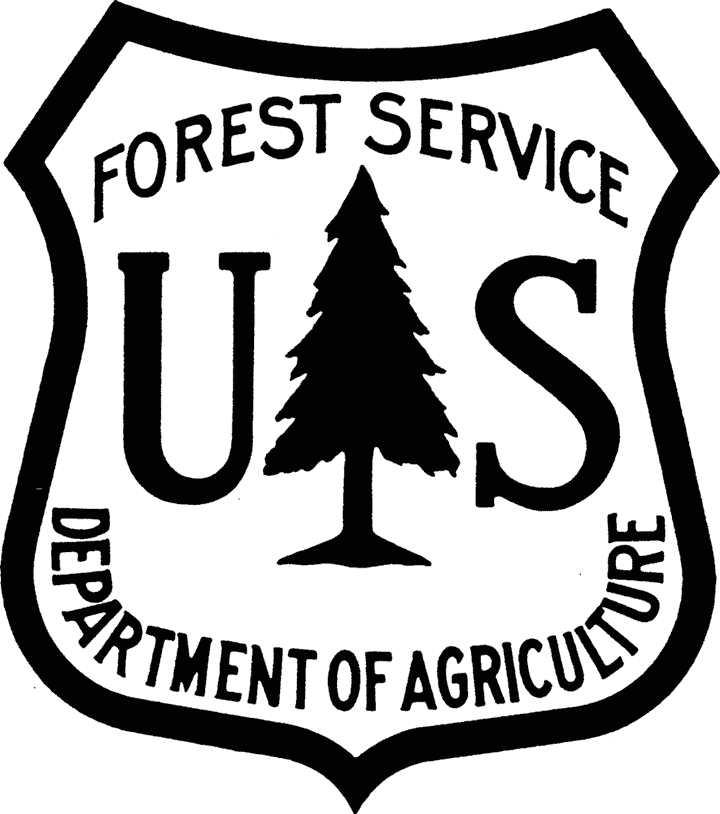
Duckweeds are the smallest flowering plants on earth. They can take in carbon from the air and convert it into biomass very quickly. In fact, when it comes to sequestering carbon, they are ten times better, per acre, than a healthy forest, which means these tiny plants are an excellent natural tool to combat global warming.
The research group led by Na Wei, scientist at the Holden Arboretum, is studying how to leverage duckweeds and their associated microbes for climate change mitigation, with funding from a recent NSF grant. Her team has been hunting for these tiny plants across the country since this summer.
Emily Lewis, research specialist in the Wei Lab, led the field expeditions with the help of enthusiastic volunteers. So far, the team has collected duckweeds from 22 different states: Ohio, New York, Pennsylvania, Maryland, Indiana, Michigan, Wisconsin, Illinois, West Virginia, Virginia, Mississippi, Tennessee, Kentucky, Missouri, North Carolina, South Carolina, Georgia, Alabama, Washington, Oregon, California, and Texas.
Hunting for Duckweed
Although duckweeds are very common in North America, it can be difficult to predict which sites, that are accessible to our teams and on public land, will contain duckweeds. Luckily, large enough populations actually show up on Google Maps satellite images — their unique shade of green gives them away, and citizen reporting of duckweeds through apps like iNaturalist helps to confirm the presence of duckweeds.
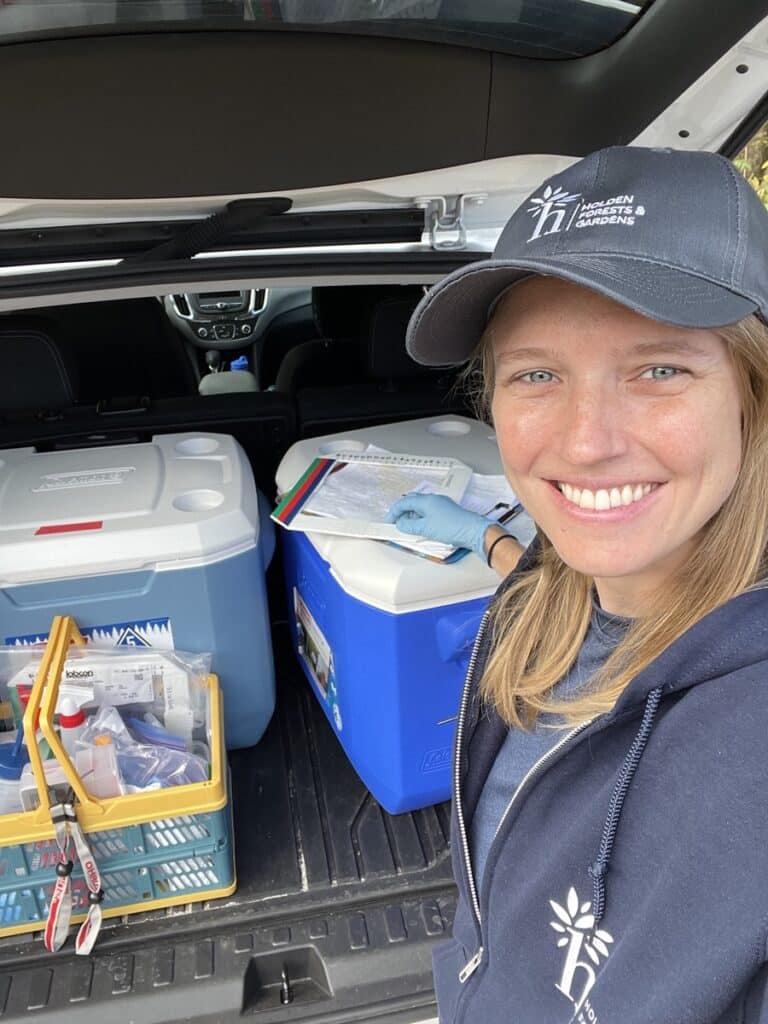
Hanging out at ponds and parks while hunting for duckweeds can lead to some great wildlife viewing, says Lewis. Many animals have watched her collecting duckweeds in their habitat, including great horned owls, green herons, great blue herons, turtles, fish, Canada geese, belted kingfishers, a fox, and more frogs than could ever be counted.
There have been a few unwelcome animals as well. In Georgia, the planned sampling site was infested with webs of the enormous but harmless Joro spider, an invasive species that can grow up to four inches long and whose presence should be reported to the Georgia Museum of Natural History for tracking purposes. Even more “exciting” was the possibility of alligators in the sampling region in South Carolina. Luckily Lewis had another volunteer, Doug Emig, with her to act as gator lookout and defense on that trip!
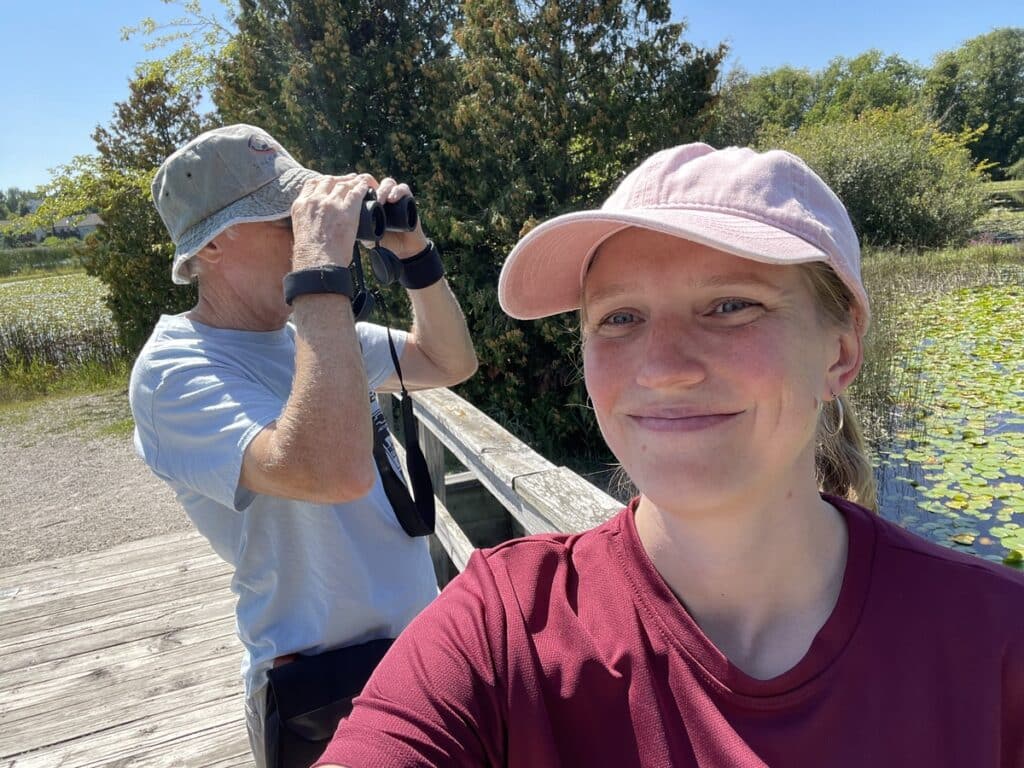
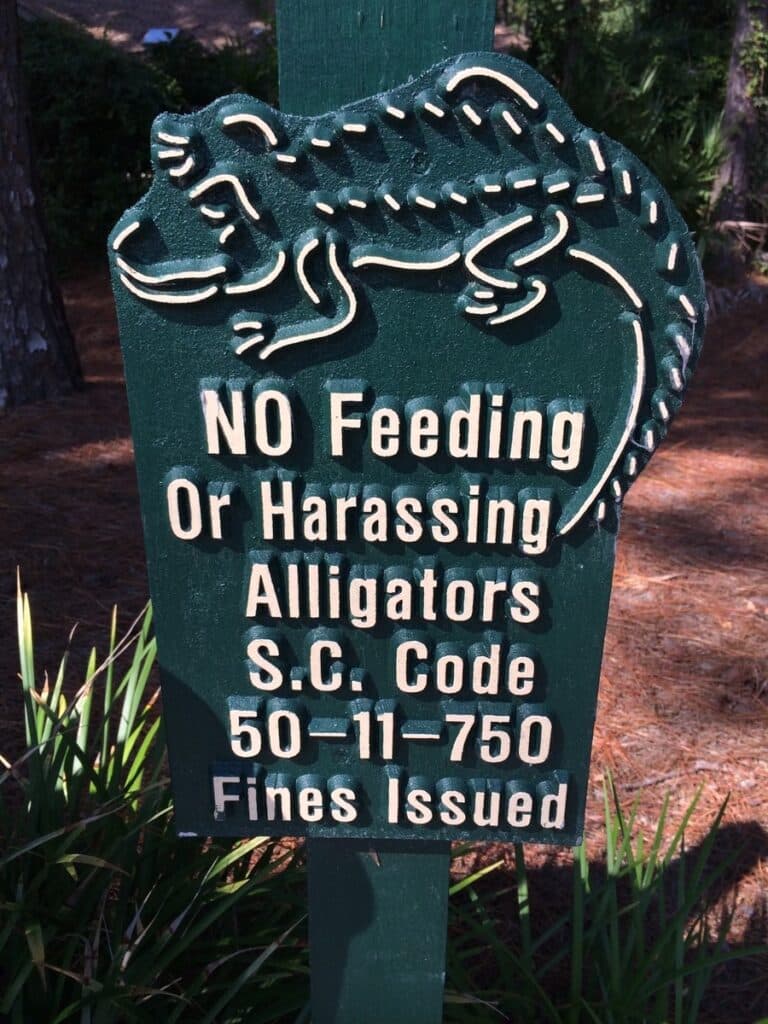
Volunteer-Powered Research
The team would not be so successful in their duckweed hunts without the help of enthusiastic volunteers! For example, when Ed Moydell, Holden’s president and CEO, heard that the team was hoping for duckweed populations across the country, he connected the team with the Bloedel Reserve in western Washington. There, Darren Strenge, Horticulturalist at Bloedel, knew exactly where to find duckweeds and mailed samples to Holden.
Holden’s previous research interns, Cordelia Zheng, an undergraduate student at Washington University in St. Louis. and Elizabeth Esser, a graduate student at Mississippi State University, have tramped through deep mud to get duckweeds from Missouri and Mississippi. The team also had volunteers who wandered through public parks (Daniel Malone Buoy, Oregon), biked for miles (Jackson Bolger, California), forayed into forests (Kyle Poling, Oregon), took time away from birding trips (C. Warneke, Wisconsin), and invested extra time to find additional sites when the original location was a bust (Robert Whyle, Texas). Special thanks to these volunteers and to those who went out searching but were thwarted by elusive duckweeds (Leah Veldhuisen, Arizona; Christy Jacobs, Idaho; Dylan Paul, New York) – the Wei Lab sincerely appreciates your efforts as above and beyond!
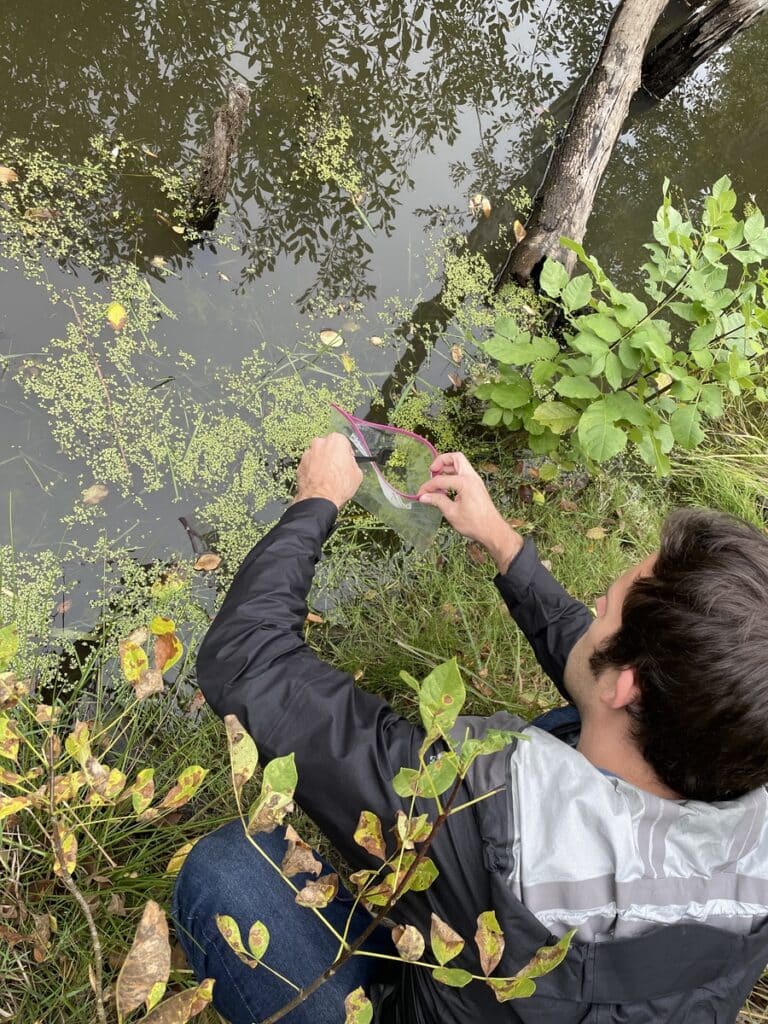
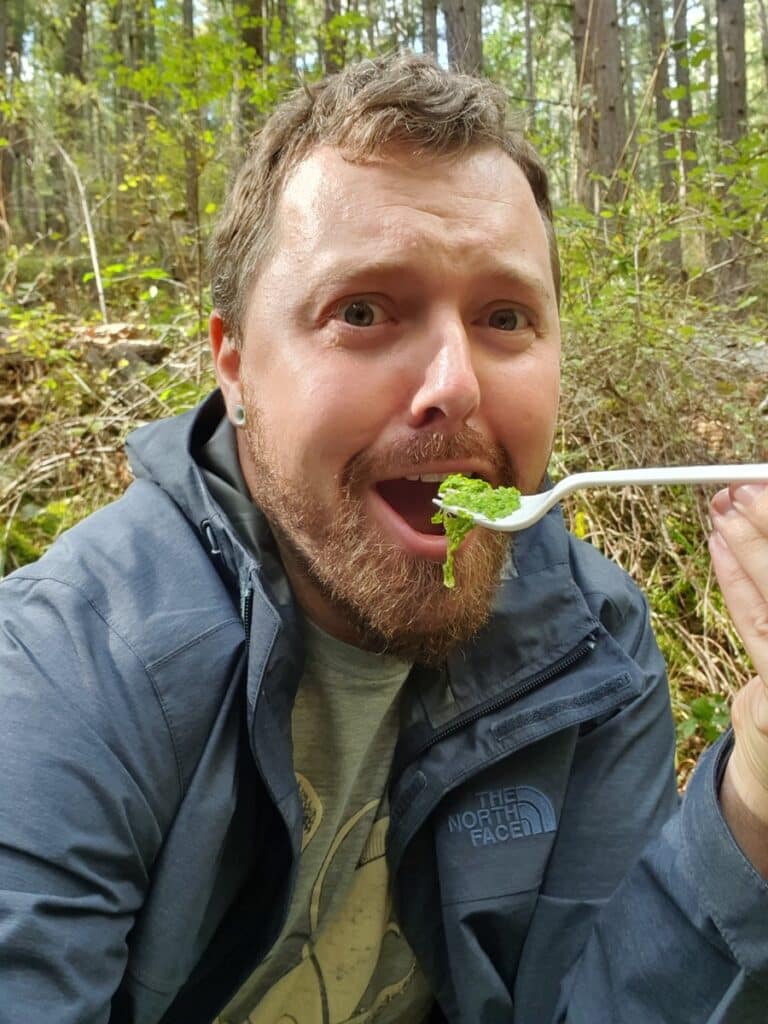
Back at the lab, Maris Hollowell, research specialist in the Wei Lab, isolated microbes from duckweeds, storing them in a super-cold freezer, and growing microbe-free duckweeds in test tubes for additional study. These permanent collections are valuable resources for the team to find out which duckweed populations will be the superstars in climate change mitigation and which microbes are the best helpers for duckweeds.
If you are interested in these tiny plants and collecting duckweeds from your area for this project, please reach out to Emily ([email protected]) and Na ([email protected]). Together, we will contribute to climate change mitigation.

Na Wei, PhD
Plant Biologist
My research program seeks to elucidate the ecological and evolutionary mechanisms that confer or constrain plant adaptation to rapid environmental change. Our lab studies eco-evolutionary adaptation through the lenses of ecology, genomics, and microbiome. By leveraging the biofuel plants (duckweeds, Lemnoideae) and crop wild relatives (wild apples or crabapples, Malus, and wild strawberries, Fragaria), our work addresses not only fundamental questions in evolutionary ecology and genomics, but also practical problems faced by agriculture, ecosystem management, and biodiversity conservation under climate change. Currently, we are working on (1) plant–microbe symbiosis, (2) adaptation conferred by polyploidy, (3) plant–pollinator interactions, and (4) agricultural and urban microbiomes.
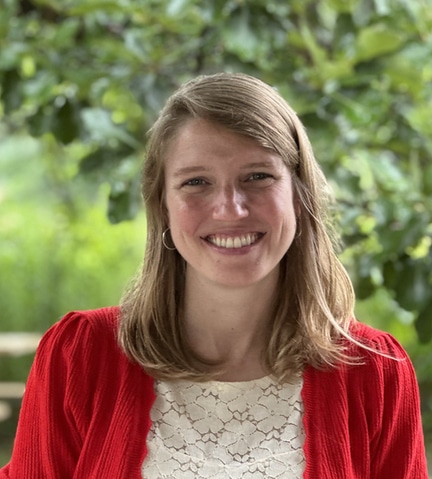
Emily Lewis, MS
Research Specialist
I am an evolutionary ecologist and geneticist. While I am interested in diverse areas of plant biology, I am captivated by questions concerning the evolutionary adaptations at the intersection of ecology and genomics. What we see with our eyes cannot be fully understood without evolutionary context, which requires genetic tools and meticulous experimental design. I seek to investigate questions that incorporate both ecological interactions and the evolutionary mechanisms driving them.
